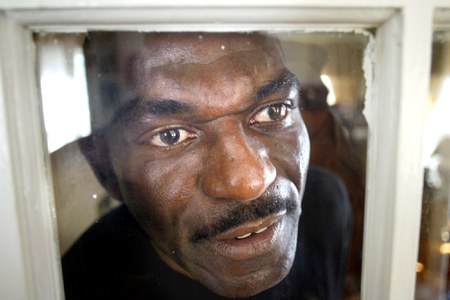Ulysses Rodriguez Charles

In 2001, Ulysses Rodriguez Charles was released from prison after serving 17 years for aggravated rape, robbery, unlawful confinement, and entering armed with intent to commit a felony for raping three women in their apartment in Boston. His conviction was vacated after DNA testing excluded him as the source of biological evidence. The police had evidence excluding him right after the crime occurred but failed to disclose it.
The Crime
On Dec. 8, 1980, three white women were raped and robbed in their apartment in Boston. They described their attacker as a Black man, 5 feet 10 inches tall, with a thin build and a straggly beard. At the hospital, one woman said the attacker had an American accent.
The Investigation
The following day, police interviewed the women. The women viewed about 200 police mug shots, including two photographs of 30-year-old Ulysses Rodriguez Charles, a native of Trinidad who had been arrested in the past by Boston police.
All three women identified Mr. Charles as their attacker.
On that same day, Stanley Bogdan, a Boston Police Department criminalist, collected a sheet from the bed where two of the rapes took place as well as the robe of one of the women.
Police obtained a sample of Mr. Charles’ blood. Boston police criminalist Stanley Bogdan analyzed the seminal fluid and determined the attacker had blood type O. Mr. Charles had blood type B. Mr. Bogdan determined that Mr. Charles was excluded as the source of the semen. That evidence, however, was not disclosed.
Mr. Charles was arrested on June 1, 1981, although he had a Caribbean accent, dreadlocks, and gold front teeth — all distinctive characteristics and none of which had been mentioned by the women. He was charged with aggravated rape, robbery, unlawful confinement, and entering armed with intent to commit a felony.
The Trial
In 1984, Mr. Charles went on trial in Suffolk County Superior Court. The women all identified him, although one said she initially identified him from his photo because his hair was in dreadlocks, even though police didn’t have a photo of Mr. Charles in dreadlocks until after he was arrested.
Charles Campo, a Suffolk County assistant district attorney, elicited testimony from Mr. Bogdan that the stains retrieved from the evidence were not from semen. Assistant District Attorney Campo also failed to disclose that sperm had been recovered from the vaginal swabs, but had not been preserved.
Mr. Bogdan testified falsely that because the stains on the bed sheet were not from semen, the attacker had failed to ejaculate.
On June 14, 1984, the jury convicted Mr. Charles of aggravated rape, robbery, unlawful confinement, and entering armed with intent to commit a felony. He was sentenced to 80 years in prison.
The Exoneration
While in prison, Mr. Charles managed to obtain copies of the women’s medical records and saw that vaginal swabs had been taken and that the hospital analysis showed that sperm was found. He learned that police had ignored the hospital request to take the swabs as evidence. As a result, the swabs were destroyed.
In 1995, Mr. Charles sought to have the bed sheet and robe submitted for DNA testing. The request was denied after the prosecution opposed the motion for testing.
However, Mr. Charles continued his legal battle and, in 1999, a motion to have the evidence tested was granted. The DNA tests eliminated him as the source of the biological evidence. The DNA profiles of two unknown men were identified.
On May 17, 2001, Mr. Charles’ convictions were vacated and the charges were dismissed. Mr. Charles was released on Aug. 23, 2002 after being held in custody during a battle over whether he should be deported because of a previous conviction.
In 2004, Mr. Charles filed a wrongful conviction lawsuit against Mr. Bogdan and other police officers. The lawsuit was settled for $3.25 million in 2009. Mr. Charles also was awarded $500,000 in compensation from the state of Massachusetts.

Time Served:
17 years
State: Massachusetts
Charge: Aggravated Rape, Robbery, Unlawful Confinement, Entering Armed with Intent to Commit a Felony
Conviction: Aggravated Rape, Robbery, Unlawful Confinement, Entering Armed with Intent to Commit a Felony
Sentence: 72 to 80 years
Incident Date: 12/08/1980
Conviction Date: 02/14/1984
Exoneration Date: 05/17/2001
Accused Pleaded Guilty: No
Contributing Causes of Conviction: Eyewitness Misidentification, Unvalidated or Improper Forensic Science
Death Penalty Case: No
Race of Exoneree: African American
Race of Victim: Caucasian
Status: Exonerated by DNA
Forensic Science at Issue: Flawed Serology
Year of Exoneration: 2001